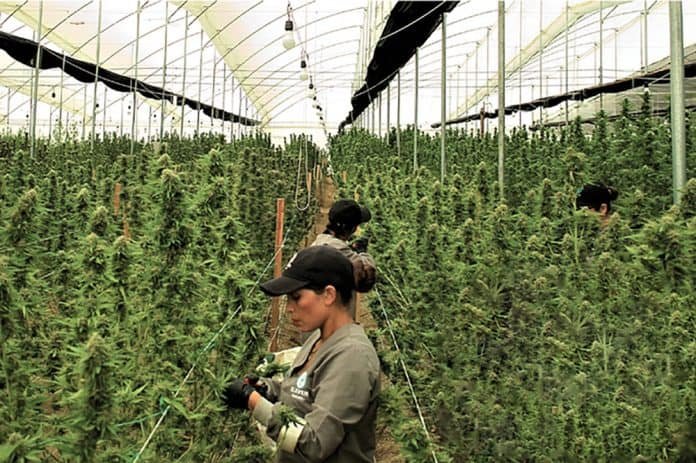COVID-19 hits hard: How does it affect Cannabis Cultivation Supply Chain?
Cannabis has been declared as an ‘essential’ commodity, and its demand is immune to the spread of the pandemic. In fact, there is an increased demand for marijuana, and its sales are higher than ever. However, it largely depends on the functioning of the global supply chain, which seems to be disrupted and has seen the most significant impact owing to the coronavirus situation.
Factories have closed down; production is at an all-time low, transportation routes and ports aren’t accessible anymore, which has led to a massive shock and disarray of the global supply chain.
According to Justin Pierce, a principal with Hydroponics, Inc, the leading provider of agricultural supplies, logistics, and procurement of hemp and cannabis industries, said that a 2-3 month delay in the supply of cultivation materials was anticipated when the coronavirus first made its presence in Wuhan, China. China is a major supplier of cultivation materials like pots, grow lights, materials for vaping devices, and other agricultural commodities.
The effect is seen in the U.S. as well. It is impossible for companies, especially production-focused, to function efficiently and at full-force due to layoffs and employees in quarantine. The aftermath of this global tragedy and its effect on the supply chain would be seen in its entirety later this spring.
Justin Pierce said that Hydroponic, Inc, saw their average weekly sales double in the first couple weeks post state lockdowns. The company sells a variety of products that cultivators of marijuana require – soil, fertilizers, nutrients, etc.
With a massive demand for cannabis since the spread of the pandemic, cultivators continue production and cultivation. It has been noted that growers are stocking up in large amounts in fear of future shortage of supply. It is also because the supply shortage and growing demand might lead to an inevitable spike in the prices.
Marijuana companies have witnessed record-breaking numbers of orders and a massive surge in demand. This is a clear situation of panic buying, which is a major concern for cultivators. It has put a lot of pressure on the supply chain and has driven the cultivators to order more supplies. They are anticipating the demand to grow steadily, with cannabis being a recession-resistant product.
Along with the lack of supply of equipment, another concern that the cannabis industry is experiencing is the lack of capital, too. With more states and cities in lockdown, and the staff being quarantined, fewer people are working with the plant. As the marijuana industry enters its growing season, the lack of work might see a shortage of flowers in the future too.
According to Remedy Columbia owner, Mitch Trellis, it can take up to six months for the flower to reach dispensaries. So, although the vendors might not face a shortage now, the situation will be unfavorable by the end of the year.
In the short term, the cultivators will see the logistic costs skyrocket. Though major sectors are suffering due to COVID-19, logistics and transportation are thriving, with their prices going up by 34%. However, in the long-term, the cannabis industry will go through major changes in the landscape of cultivation supply. The higher costs of procuring supplies would lead to higher costs assigned to the other parts in the chain. In a way, everyone loses.
About 50% of the small businesses will have to shut down and will not survive the pandemic, according to the Economic Policy Institute. This will see a decrease in competition and an eventual increase in prices.
The world of logistics and operation might change substantially post the devastating crisis. And only the fittest will survive.




